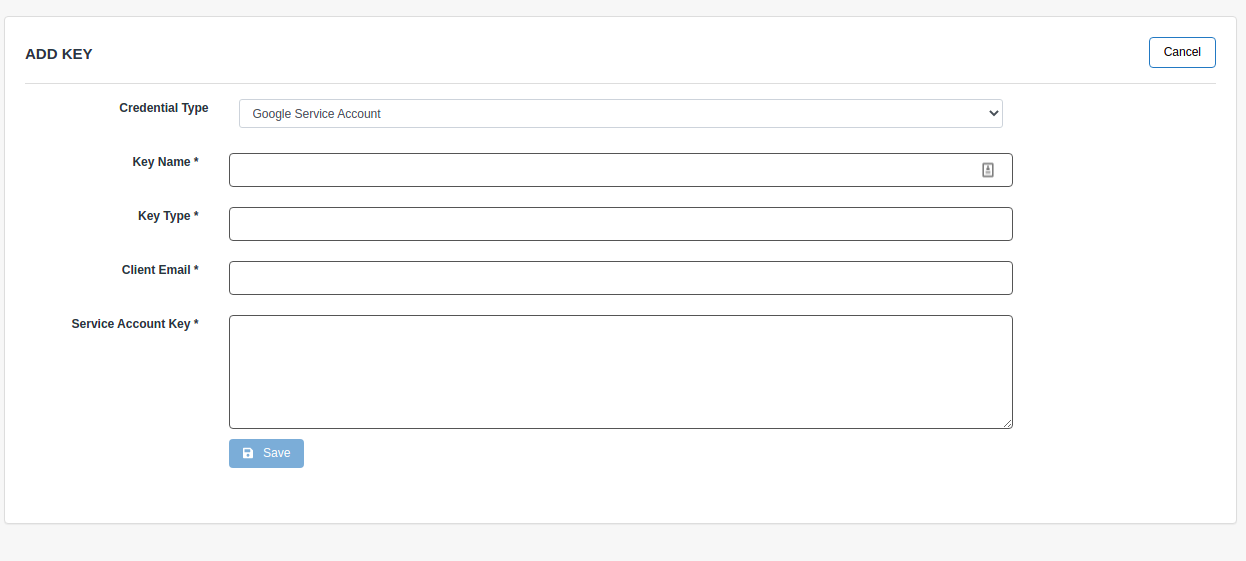Google Campaign Manager 360
The Switchboard Google Campaign Manager 360 connector allows for ingestion of data from the Campaign Manager 360 API
Prerequisites
Google Campaign Manager 360 requires authentication either through a Google Service Account or Google OAuth.
Google Service Account
To authenticate via a Google Service Account add a Key with the Credential Type Google Service Account
Service accounts differ from user accounts in several key ways.
- Client Email
- Email address associated with the Service Account
- Key Name
- Value set here will be used in your Switchboard Script.
- Key Type
- Corresponds to the format of the Service Account Key. Typically the value is
json - Service Account Key
- Entire text of the key pair provided when a Service Account is generated

Google OAuth
To authenticate via Oauth you must add a Key with the Credential Type Google OAuth, enter a Key Name (used in the Switchboard Script below) and perform the Oauth flow by clicking the button labeled Connect.

Scheduling
Google Campaign Manager 360 connector can be scheduled to ingest data once per day at a user-defined hour and timezone.
By default, the connector will run once at 6am PT.
See Daily Scheduling for more information.
Parameters
The Campaign Manager 360 API supports all of the dimensions, metrics, and filters provided by the DCM Report Builde
- dimensions
- REQUIRED See the Campaign Manager 360 API list of Standard Report Dimensions; string list
- metrics
- REQUIRED See the Campaign Manager 360 API list of Standard Report Metrics; string list
- api_version
- REQUIRED api version against which the connector should operate; string
N.B. v3.4 is deprecated and will be sunset on Dec 24th, 2021
Switchboard Script Syntax
import google_campaign_manager from {
type: "google_campaign_manager:report";
key: "google_service_account";
api_version: "v3.5";
email: "switchboard@switchboard-software.com";
dimensions: [
"siteKeyname",
"date"
];
metrics: [
"impressions",
"mediaCost"
];
} using {
accountId: string;
accountName: string;
subAccountId: string;
subAccountName: string;
profileId: string;
userName: string;
siteKeyname: string;
date: string;
impressions: integer;
mediaCost: string;
};